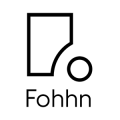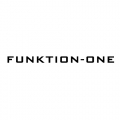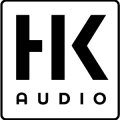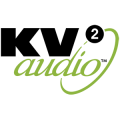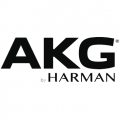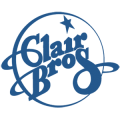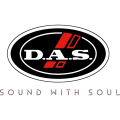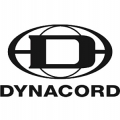K-EYE K20 HCR
K-EYE HCR is an LEDwash light which provides total control over the quality of all forms of white or colored light. The new HCR technology used in the K-EYE is an exclusive electronic platform developed by Claypaky in conjunction with Osram to meet the needs of lighting designers all over the world who were not fully satisfied with the performance of LED devices in comparison with traditional lamps, in particular because of their incomplete color range, poor color rendering index and lack of consistency.
All these limitations have been overcome in the K-EYE HCR, and it is finally possible to produce every color, every nuance and every shade with satisfactory quality. The heart of the K-EYE HCR wash light is a LED light source consisting of a module with six colors: besides the three “classic” basic red, green and blue colors, Claypaky has added amber, cyan and lime. This exclusive Claypaky device provides a very wide color range with excellent color spectrum coverage.
Features
- Advanced LED moving head wash light
- Light sources: 37 LED modules
- 6-color LED module: RGB + Amber + Cyan + Lime
- Rated LED module average lifetime: 50,000 h
- CRI > 97 (up to 99)
- 2500K-8000K color temperature correction
- Control of the colors: RAW mode, HSL mode, RGB mode, CMY mode.
- Dedicated color macro channel
- Software algorithm by Osram
- 7°- 53° linear zoom
- Electronic linear dimmer, 16 bit
- Optional frame for external gels and frost filters
- Optional top hat
- Protocols/Functions: RDM, Web Server and ArtNet
- Totally flicker free
- Very silent: 38.5 dB(A)
Professional used lighting equipment.| Professional second hand lighting equipment.| Professional pre owned lighting equipment.
Professional used audio equipment.| Professional second hand audio equipment.| Professional pre owned audio equipment.
Second hand audio gear. | Second hand lighting.
Pro audio equipment, second hand amplifiers, DJ, second hand sound systems, second hand Microphones, second hand Media Players.
Outdoor & Indoor LED screens for sale, LED mobile truck.
Light trussing, Gebrauchte Veranstaltungstechnik, used stage equipment Stage & Theatre lighting products.
Used Clay Paky
Claypaky S.p.A., a subsidiary of the German lighting manufacturer Osram, is a developer of professional lighting systems for the entertainment sector (theatre, television, concerts, nightclubs and outdoor events ) and for architectural applications.
The company is based near Bergamo, about 40 km from Milan, Italy. It operates from a modern facility housing its R&D labs, main production plant and quality control, sales and administration departments. At present Clay Paky exports 95% of its production through a global sales and service organization represented by a dealer network active in more than 80 countries around the world.
The Claypaky company was founded in August 1976, taking its name from the shortened, anglicized form of the name of its founder, Pasquale (Paky) Quadri, one of the first entrepreneurs to realize that technological developments in lighting would have an enormous future in the show business and entertainment world.
In 1982 Claypaky presented the Astrodisco, which used a single lamp to project multiple rays of colored light across ceilings and dance floors. Five years later it launched Brilliant, a digitally controlled moving head and forerunner of a new generation of “intelligent” projectors.
This was followed in 1988 by the programmable Golden Scan, a moving mirror projector and the first luminaire to implement stepper motor technology instead of servo motors. Acclaimed by the specialised press as “the world’s most popular and best-selling projector”, the Golden Scan became a commonly used lighting effect at nightclubs and rock concerts during the late 1980s and the 1990s.The London rock band Klaxons claimed the projector was the inspiration behind their light-themed, hit single Golden Skans.
Since 2000, Claypaky has also been developing its offer for indoor and outdoor architectural applications. In 2002 it moved its headquarters to a new industrial complex in Seriate (Bergamo), achieving certification for compliance with the UNI EN ISO 9001 quality standard that same year.
Claypaky has experienced constant growth, reporting revenues of more than 50 million euro for 2011, up by over 50% from 2010 (33 million euro). It has a workforce of nearly 200 people. In 2014 the Claypaky founder Pasquale Quadri died and the company has been acquired by Osram.
Professional used lighting equipment.| Professional second hand lighting equipment.| Professional pre owned lighting equipment.
Professional used audio equipment.| Professional second hand audio equipment.| Professional pre owned audio equipment.
Second hand audio gear. | Second hand lighting.
Pro audio equipment, second hand amplifiers, DJ, second hand sound systems, second hand Microphones, second hand Media Players.
Outdoor & Indoor LED screens for sale, LED mobile truck.
Light trussing, Gebrauchte Veranstaltungstechnik, used stage equipment Stage & Theatre lighting products.
Ears: The three individual slots that function as the color frame holder found on the front of some light sources. They are often used to retain other items, such as color wheels, barn doors, etc.
Edison Connector: The standard household male, parallel-blade plug that may or may not have a ground pin.
Edison Lamp Holder: The standard household screw-in lamp socket that accepts medium screw type lamp bases.
Egg Crate: A square or rectangular grid that, when installed on large open face light sources, alters the shape and intensity of the light and reduces glare.
Electrical Current: The flow of electrons from one point to another, measured in Amperes.
Electrical Frequency: The cycles per second of alternating current, measured in Hertz. In North America, and parts of South America and Southeast Asia, the frequency is 60Hz. The rest of the world operates on a frequency of 50Hz.
Electrical Noise: A general term for an unwanted electronic disturbance in conductors or electrical or electronic equipment. This equipment can also be the cause of electrical noise.
Electrical Power: The rate at which electricity is delivered to a circuit, in watts, or in reference to magnetic transformers, in Volt-Amperes.
Electronic Ballast: A ballast uses electronic components to limit electrical current. This type of ballast is often referred to as a flicker-free ballast.
Ellipsoidal: Short for Ellipsoidal Spotlight.
Ellipsoidal Spotlight: A spotlight that is encased in an ellipse-shaped reflector and framing shutters, and sometimes an iris and pattern slot.
Eye Light: A small, intense light source used to front light a subject, usually a person`s face, with hard light.
Fahrenheit: A graduated scale used to measure temperature. In the Fahrenheit scale, the freezing point is 32°F and the boiling point is 212°F.
Falloff: A term used to describe the illuminated area just outside of the field. (This term may also refer to the illumination in this area.) Light from a point source falls off inversely to the square of the distance. Move the light from 10` away to 20` away, and you have 1/4 of the intensity 40`, 1/16th.
Diffused lights fall off even faster than point sources. See Inverse Square Law.
fc: Abbreviation for foot-candle.
Feed Through: A wiring system employed in some electrical equipment and light sources in which the line-side leads or flush-mount connector(s) for a first item branch into two circuits internally. One circuit provides the electrical supply to the item itself, and the second circuit exits the unit by means of a set of load-side leads or another flush-mount connector(s). This allows for a second item to be electrically connected to the first. A plurality of items may be connected in this way, usually light sources such as strip lights. See Daisy Chain.
Female: A term applied to a connector that contains the holes or slots for receiving the pins, prongs, blades or tabs of a male connector. The female connector should always be attached to the line side of a circuit.
Field Angle: The angle of the vertex of a cone-shaped beam where the perimeter of the base is defined by where the intensity is 10% of the maximum intensity.
Field Diameter: The diameter of the base of a cone-shaped beam where the perimeter of the base is defined by where the intensity is 10% of the maximum intensity.
Filament: The wire inside an incandescent lamp envelope that glows and emits light when heated, i.e., when electricity passes through it.
Fill: To create the illumination needed to reduce shadows in an area or on a subject.
Fill Light: Angled from the side opposite the key light, this light softens the shadows created by the key and evens out the lighting ratio.
Filter: A term that refers to color media, diffusion material, light blocking or neutral density.
Filter Frame: See Color Frame.
Finger: A small, narrow, rectangular scrim, diffuser, reflector, or gobo, placed close to a light source, used for dimming, softening, bounce lighting, and casting shadows, respectively. Fingers are usually 2" to 6" in length, and 12" to 14" in width.
FL: A lamp designation that means flood.
Flag: (Filter, Gobo) An opaque panel, usually made of fabric, placed in the beam of a light source to block a portion of the beam or the whole beam. It can also hide lights in the dark recesses of a scene. They are usually square or slightly rectangular in shape, ranging from 10" to 48" in length, and 12" to 48" in width. Which term you use depends upon the device`s size and what part of the country you are in.
Flash: A tube filled with xenon gas through which an electrical charge of high voltage is passed to create an electrical arc that emits a short, bright flash of light. Flash light is daylight balanced, usually measuring 5500° Kelvin. See Strobe.
Flat Light: See Diffuse Light. All light is characterless, texture less and shallow shadowed when the source is close to the camera. Soft light is, by its nature, flatter than hard light, but even a soft source, above or to the subject`s side, is not flat.
Flicker: The flashing of some light sources that cannot be visually detected because of the frequency of its output voltage, but can adversely affect the way motion picture film records light.
Flicker-Free: A term used to describe electronic ballasts that electronically alter the electrical frequency that causes flicker.
Flood: The position of a moveable lamp, lens or pair of lenses on a spotlight that produces the widest field angle. To direct a large amount of light on a relatively large area.
Flood Light:A light source consisting of a rectangular lamp and sometimes a single lens, used to direct a large amount of light on a relatively large area.
Floppy Flag: A large flag that is designed to fold in half and function as a cutter or smaller flag.
Fluorescence: The property of certain materials to absorb radiation of certain wavelengths, usually ultraviolet, and re-emit the radiation as light.
Fluorescent Lights: Cool and daylight balanced, fluorescent lights have become very popular for photographic and video capture. Fluorescent lighting can be used in the form of screw-in bulbs and reflectors, or rectangular banks of lights.
Foamcore: A polystyrene, Styrofoam material used as a substrate for some reflector boards, effective because of its light weight and ease of mounting via reflector forks.
Focus: To aim and adjust a light source to give the beam its desired size (spot or flood), edge (soft or hard), field (even or peak) and shape (round, patterned or cut).
Focus Lens: A movable lens in a multi-lens optical system that adjusts the focus of a light source.
Follow Spot: A narrow-beam focusing instrument that is manually operated and is usually composed of a powerful light source, an iris, shutters, a color changer and other features. It is usually operated from an adjustable stand and is used to follow performer(s) on a stage with its beam, surrounding the performer(s) in a large pool of light.
Foot-candle (fc): A non-metric unit of measurement for Illumination, i.e., 1 lumen per square foot.
Framing Projector: A spotlight that has framing shutters or barn doors.
Framing Shutters: Thin, movable, heat-resistant metal plates that are introduced into a beam such that a portion(s) of the beam is blocked off,i.e., framed affecting the beam pattern, usually forming a sharp edge in the beam. They are used in various types of light sources, but extensively in ellipsoidal spotlights, usually four (top, bottom, right and left) follow spots, usually two (top and bottom), always situated internally, and usually at the aperture. Framing shutters generally can be independently adjusted, but those used in follow spots usually move simultaneously with a single control mechanism.
French Flag: A small metal flag, usually used for shading.
Fresnel: Short for Fresnel Spotlight.
Fresnel Lens: Named for its inventor, French physicist Augustin J. Fresnel, and developed around 1800 for lighthouses, this is a flat lens consisting of concentric rings on one side that are segments of the spherical portion of a Plano-convex lens. The other side is flat, i.e., Plano. It controls light in the same manner as a Plano-convex lens, which converges light into a beam.Many light sources employing this type of lens have a stippled pattern on the flat side of the lens to diffuse to smooth out the beam.
Fresnel Spotlight: A spotlight employing a single Fresnel lens that produces a soft-edged beam, usually provided with a spherical reflector and a means to adjust the focus from spot to flood.
F/Stop: A rating often applied to scrims used in the film and video industries on their ability to dim light. This rating is directly related to a camera`s ability to allow for the admittance of light.
Full Scrim: A metal scrim whose screen occupies the complete frame.
Fuse: An electrical device designed to stop the flow of electricity automatically when a predetermined over current tries to pass through it. This is meant to prevent further damage or fire from overheating.
Fused Quartz: A relatively pure, high-temperature glass used to manufacture lamp envelopes. It has a melting point of approximately 1650° C.
Gaffer: The lighting technician who is in charge of the electrical aspects of a set or production.
Gaffer Grip: A large, spring-loaded clamp with serrated or rubbercushioned jaws. It usually has a stud or studs for the attachment of luminaries and grip equipment.
Gaffer`s Pole: See Operating Pole.
Gag: An apparatus composed of two grip heads attached to each other via a common bolt.
Gel (Gelatin, Media): As used with photographic lights, a strong, flexible, fade-resistant material, used to change the color, amount or quality of light. A colored filter placed in front of a lighting fixture. Color is an important element in adult learning.
Gobo: A logo or image etched out of metal that allows it to be projected onto a screen, wall, banner or other solid surface. Often used for brand reinforcement during events. Video mapping can be used to produce a similar by higher-end effect.
Guide Number: Guide numbers are used as a rating system to gauge the power or range of flash. The guide number equals the distance x f/stop. For example, say your flash has a guide number of 80. At ISO 100, to determine the proper exposure for a subject 20 feet away, multiply 20 by X number (in this case 4) to get 80 (the guide number). Setting the aperture to f/4 (80 = 20 x 4) will render a proper exposure (at ISO 100).
Professional used lighting equipment.| Professional second hand lighting equipment.| Professional pre owned lighting equipment.
Professional used audio equipment.| Professional second hand audio equipment.| Professional pre owned audio equipment.
Second hand audio gear. | Second hand lighting.
Pro audio equipment, second hand amplifiers, DJ, second hand sound systems, second hand Microphones, second hand Media Players.
Outdoor & Indoor LED screens for sale, LED mobile truck.
Light trussing, Gebrauchte Veranstaltungstechnik, used stage equipment Stage & Theatre lighting products.




















